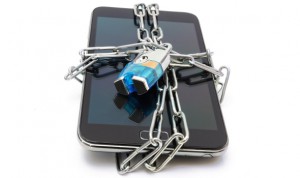Big Brother Is Watching: Why Apple’s Stance Against the FBI Is a Big Deal
“If you want to keep a secret, you must also hide it from yourself.” – George Orwell, 1984
On December 2, 2015, two armed gunmen killed 14 people and seriously injured 22 more. They tore through the city of San Bernardino, CA and left behind a terrified and confused community. They also left behind digital information, stored in a locked phone.
On February 16, 2016, the Federal Bureau of Investigation (FBI) was granted an order by a federal court to ask Apple, Inc. to provide “reasonable technical assistance” to investigators. In essence, the FBI wanted Apple’s help to unlock the phone.
Immediately, the CEO of apple, Tim Cook, publicly stated that the company will not follow with the order. He cited that it would threaten the security of their customers, as well as have profound legal implications that will be far reaching. 
To the FBI and the government, the phone can hold important information that would be key to preventing future attacks. Who should prevail? How can the FBI compel Apple to help them? Why is this court order so troubling? Where will the legal system go from here?
How Did an Act from 1789 Become Front and Center?
The FBI’s order was granted under the All Writs Act of 1789 (AWA). The Act seems old and obscure, but despite how old it is, the Act itself is not complicated. It is like a catch-all provision that will enforce government orders if a judge considers it necessary. It aids the government action if it is the only tool available.
There are four requirements for the use of the Writ:
- There are no alternatives;
- The writ is not used to create jurisdiction for the government;
- It is necessary or appropriate to help the government; and
- The writ does not violate the general principles of the law.
It essentially boils down to one key question: is this writ necessary? A lot like an injunction, the judge will decide whether to grant the Writ. The judge has the power to grant or deny the Writ based on their independent judgment.
This means that a different judge presented with an almost identical motion can deny the writ. On February 29, 2016 a judge in New York denied the FBI and Drug Enforcement Administration (DEA) a writ under the AWA. The judge determined that the necessity of the writ did not overcome the fact that Apple must give aid against their will. The judge also warned of what may happen if the writ is granted. How it can produce “impermissibly absurd results.”
What Are the Results and Why Are They Absurd?
There is a lot of discussion about what will happen if Apple will is forced to help the FBI. The technological implications seem to show that the government will have a way to break into password protected phones. They could break into phones of the average person without needing to use the AWA. To those who support Apple, George Orwell’s 1984 is coming to life.
The American legal system is based on several ideologies. Other nations create laws that binds the government to a promise, such as government paid healthcare. In contrast, the United States creates laws that limits the government. In general, the government will not interfere with practice of religion, speech, and ownership of property. Above all, the American legal system promises citizens freedom from their government.
Most importantly, the government cannot force its citizens into “slavery” or “involuntary servitude.” It is clear from Apple’s statements to the public that they do not want to comply with the Writ. The judge in New York stated that a writ under the AWA would “compel Apple – a private party with no alleged involvement…to perform work for the government against its will.” The judge ruled that the law does not allow that result.
The nation already has fears of government wiretapping. Now, to forcing a private business to work for the government seems to result in “the perfect storm.” If the government succeeds and Apple must follow the Writ, then an important precedent will be set. Judges may look the current case to decide whether to grant an AWA Writ for future cases.
A Future Our Founding Fathers Couldn’t Foresee
While there are many technological reasons why enforcing the Writ could be dangerous, there are legal reasons as well. Would Apple be pushed into involuntary servitude if the Writ is enforced? Does the Writ violate the general principles of the law?
Here, the intent of the Founding Fathers cannot be easily discerned.We live in a world where our lives leave a digital trail and not a paper one. The details of our lives is often accessible through one device. Our expectation of privacy used to be limited to our home. But now it is no longer clear where that expectation begins or ends.


Comments